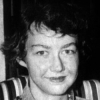Flannery O'Connor

Flannery O'Connor
Mary Flannery O'Connorwas an American writer and essayist. An important voice in American literature, she wrote two novels and 32 short stories, as well as a number of reviews and commentaries. She was a Southern writer who often wrote in a Southern Gothic style and relied heavily on regional settings and grotesque characters. Her writing also reflected her own Roman Catholic faith and frequently examined questions of morality and ethics. Her posthumously-compiled Complete Stories won the 1972 U.S. National Book...
NationalityAmerican
ProfessionNovelist
Date of Birth25 March 1925
CitySavannah, GA
CountryUnited States of America
Let me make no bones about it: I write from the standpoint of Christian orthodoxy. Nothing is more repulsive to me than the idea of myself setting up a little universe of my own choosing and propounding a little immoralistic message. I write with a solid belief in all the Christian dogmas.
For me it is the virgin birth, the Incarnation, the resurrection which are the true laws of the flesh and the physical. Death, decay, destruction are the suspension of these laws. I am always astonished at the emphasis the Church puts on the body. It is not the soul she says that will rise but the body, glorified.
Remember that you don't write a story because you have an idea but because you have a believable character.
I spend three hours a day writing and the rest of my day getting over it.
It began to drizzle rain and he turned on the windshield wipers; they made a great clatter like two idiots clapping in church.
She was a good Christian woman with a large respect for religion, though she did not, of course, believe any of it was true.
Everything that gave her pleasure was small and depressed him.
She felt that she would have to be much more than just a doctor or an engineer. She would have to be a saint...
I once received a letter from an old lady in California who informed me that when the tired reader comes home at night, he wishes to read something that will lift up his heart. And it seems her heart had not been lifted up by anything of mine she had read. I think that if her heart had been in the right place, it would have been lifted up.
He knew that he was the stuff of which fanatics and madmen are made and that he had turned his destiny as if with his bare will. He kept himself upright on a very narrow line between madness and emptiness and when the time came for him to lose his balance he intended to lurch toward emptiness and fall on the side of his choice.
So many people can now write competent stories that the short story is in danger of dying of competence.
The mind serves best when it's anchored in the Word of God. There is no danger then of becoming an intellectual without integrity...
Jesus was the only One that ever raised the dead," The Misfit continued, "and He shouldn't have done it. He shown everything off balance. If He did what He said, then it's nothing for you to do but throw away everything and follow Him, and if He didn't, then it's nothing for you to do but enjoy the few minutes you got left the best way you can by killing somebody or burning down his house or doing some other meanness to him. No pleasure but meanness," he said and his voice had become almost a snarl.
I know that the writer does call up the general and maybe the essential through the particular, but this general and essential is still deeply embedded in mystery. It is not answerable to any of our formulas.